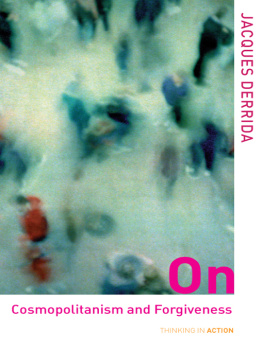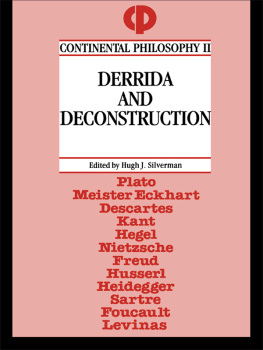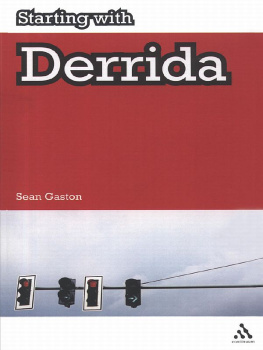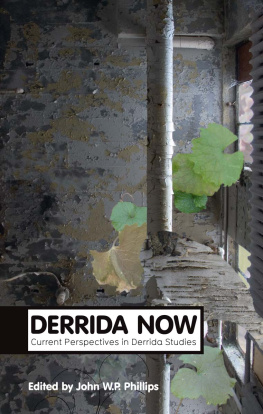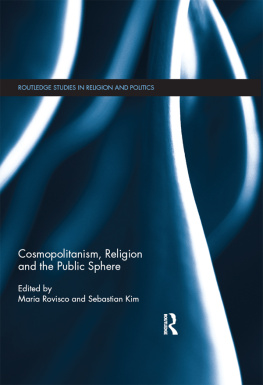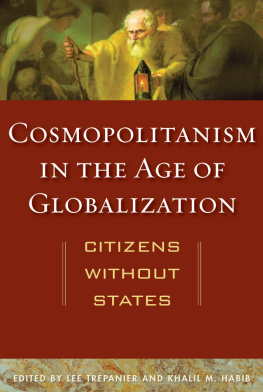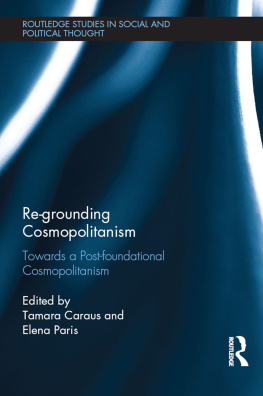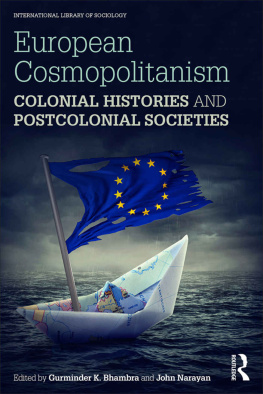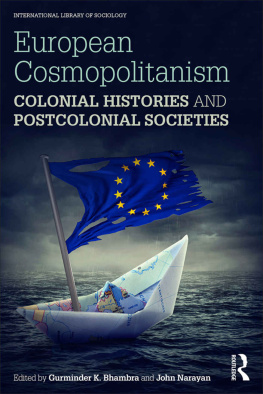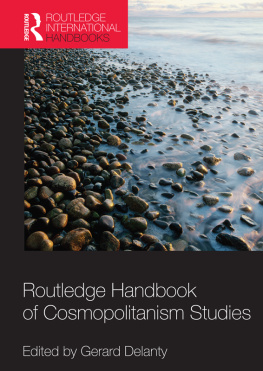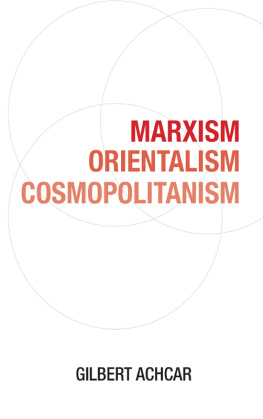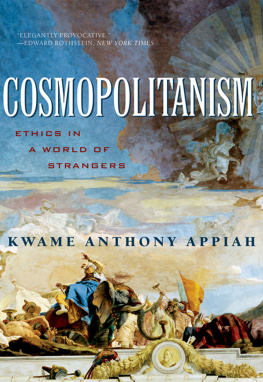
Where have we received the image of cosmopolitanism from? And what is happening to it? As for this citizen of the world, we do not know what the future holds in store for it. One must ask today whether we can still make a legitimate distinction between the two forms of the metropolis the City and the State. Moreover, one is seeking to inquire if an International Parliament of Writers can still, as its name seems to suggest, find inspiration in what has been called, for more than twenty centuries now, cosmopolitanism. For is it not the case that cosmopolitanism has something to do either with all the cities or with all the states of the world? At a time when the end of the city resonates as though it were a verdict, at a time when this diagnosis or prognosis is held by many, how can we still dream of a novel status for the city, and thus for the cities of refuge, through a renewal of international law? Let us not anticipate a simple response to such a question. It will be necessary therefore to proceed otherwise, particularly if one is tempted to think, as I do, that The Charter for the Cities of Refuge and The International Agency for Cities of Refuge
On Cosmopolitanism, translated by Mark Dooley which appear on our programme must open themselves up to something more and other than merely banal articles in the literature on international law. They must, if they are to succeed in so doing, make an audacious call for a genuine innovation in the history of the right to asylum or the duty to hospitality.
The name cities of refuge appears to be inscribed in gold letters at the very heart of the constitution of the International Parliament of Writers. Ever since our first meeting, we have been calling for the opening of such refuge cities across the world. That, in effect, very much resembles a new cosmopolitics. We have undertaken to bring about the proclamation and institution of numerous and, above all, autonomous cities of refuge, each as independent from the other and from the state as possible, but, nevertheless, allied to each other according to forms of solidarity yet to be invented. This invention is our task; the theoretical or critical reflection it involves is indissociable from the practical initiatives we have already, out of a sense of urgency, initiated and implemented. Whether it be the foreigner in general, the immigrant, the exiled, the deported, the stateless or the displaced person (the task being as much to distinguish prudently between these categories as is possible), we would ask these new cities of refuge to reorient the politics of the state. We would ask them to transform and reform the modalities of membership by which the city (cit) belongs to the state, as in a developing Europe or in international juridical structures still dominated by the inviolable rule of state sovereignty an intangible rule, or one at least supposed such, which is becoming increasingly precarious and problematic nonetheless. This should no longer be the ultimate horizon for cities of refuge. Is this possible?
In committing ourselves thus, in asking that metropolises and modest cities commit themselves in this way, in choosing for them the name of cities of refuge, we have doubtless meant more than one thing, as was the case for the name parliament. In reviving the traditional meaning of an expression and in restoring a memorable heritage to its former dignity, we have been eager to propose simultaneously, beyond the old word, an original concept of hospitality, of the duty (devoir) of hospitality, and of the right (droit) to hospitality. What then would such a concept be? How might it be adapted to the pressing urgencies which summon and overwhelm us? How might it respond to unprecedented tragedies and injunctions which serve to constrain and hinder it?
I regret not having been present at the inauguration of this solemn meeting, but permit me, by way of saluting those here present, to evoke at least a vague outline of this new charter of hospitality and to sketch, albeit in an overly schematic way, its principal features. What in effect is the context in which we have proposed this new ethic or this new cosmo politics of the cities of refuge? Is it necessary to call to mind the violence which rages on a worldwide scale? Is it still necessary to highlight the fact that such crimes sometimes bear the signature of state organisations or of non-state organisations? Is it possible to enumerate the multiplicity of menaces, of acts of censorship (censure) or of terrorism, of persecutions and of enslavements in all their forms? The victims of these are innumerable and nearly always anonymous, but increasingly Arendt proposes here, in particular, an analysis of the modern history of minorities, of those without a State, the Heimatlosen, of the stateless and homeless, and of deported and displaced persons. She identifies two great upheavals, most notably between the two wars:
1 First, the progressive abolition, upon the arrival of hundreds of thousands of stateless people (lapatrides), of a right to asylum which was the only right that had ever figured as a symbol of Human Rights in the domain of international relations. Arendt recalls that this right has a sacred history, and that it remains the only modern vestige of the medieval principle of quid est in territorio est de territorio (p. 280). But, continues Arendt, although the right to asylum had continued to exist in a world organised into nation states, and though it had even, in some individual cases, survived two world wars, it is still felt to be an anachronism and a principle incompatible with the international laws of the State. At the time when Arendt was writing this, circa 1950, she identified the absence in international charters of the right to asylum (for example in the Charter of the League of Nations). Things have doubtless evolved a little since then, as we shall see in a moment, but further transformations are still necessary.
2 The second upheaval (choc) in Europe was to follow a massive influx (arrive) of refugees, which necessitated abandoning the classic recourse to repatriation or naturalisation. Indeed, we have still to create a satisfactory substitute for it. In describing at length the effects of these traumas, Arendt has perhaps identified one of our tasks and, at the very least, the background to our Charter and of our Statutes (Statuts). She does not speak of the city, but in the shadow of the two upheavals (londe du double choc) she describes and which she situates between the two wars, we must today pose new questions concerning the destiny of cities and the role which they might play in these unprecedented circumstances. How can the right to asylum be redefined and developed without repatriation and without naturalisation? Could the City, equipped with new rights and greater sovereignty, open up new horizons of possibility previously undreamt of by international state law? For let us not hesitate to declare our ultimate ambition, what gives meaning to our project: our plea is for what we have decided to call the city of refuge. This is not to suggest that we ought to restore an essentially classical concept of the city by giving it new attributes and powers; neither would it be simply a matter of endowing the old subject we call the city with new predicates. No, we are dreaming of another concept, of another set of rights for the city, of another politics of the city. I am aware that this might appear utopian for a thousand reasons, but at the same time, as modest as it is, what we have already begun to do proves that something of this sort can, from now on, function and this disjointed process cannot be dissociated from the turbulence which affects, over the lengthy duration of a process, the axioms of international law.

